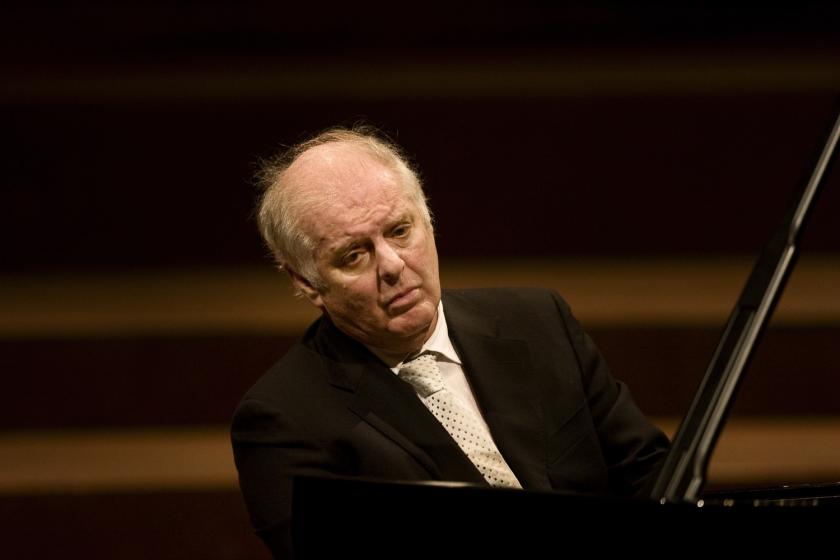Lightness. Tenderness. Grace. These are not words you normally associate with Barenboim's pianism - not these days. But they were exactly the thoughts running through my head while listening to his performance of Mozart's C minor piano concerto last night at the Royal Festival Hall. Subtly marshalling his Staatskapelle Berlin from the keyboard, Barenboim was a wholly transformed figure from the ingratiating, lollipop-distributing showman I'd seen at the Tate Modern last year.
It wasn't immediately certain that we weren't going to get Barenboim the splashy ringmaster again. The first signs weren't completely encouraging. At the concerto's opening, he looked more like a Rottweiler guarding his front yard than a conductor lovingly rallying his troops. And it took a while for his naturally rather too robust touch to settle and adjust to the piano. But once it had, loosened up by an outlandish cadenza (his own?) that moved with a Wagnerian gait, there was nothing but joy to be had. Particuarly attractive was the vivid way the various moods of the rondo Allegro assai - from the horsey gallops to the sunny slow dances - were being painted. And to top it all off, several runs dashed off with the sprezzatura of a Frans Hals brushstroke.
Barenboim conducted Bruckner Seven as if he owned it
What of the conductor-as-pianist set-up? In my opinion, you lose so much sound from the piano having an open top that the supposed virtues you gain - an authenticity and unity of purpose - seem a poor trade-off. Even so, in this instance it very much made sense. The square formation - first violins versus seconds, piano versus woodwind - beautifully elucidated the question-answer structure of the second movement Allegretto. It also placed the ravishing music for the winds centre-stage. Did the Staatskapelle Berlin do it justice? The audience clearly thought so. I wasn't sure. The principal oboist's non-legato phrasing struck me as overly desiccated. Was Barenboim wanting a more period sound? If so, it wasn't quite working.
Still, we weren't to be completely denied a lush German sound. The second half Bruckner Seven made sure of that. Here, we returned to a Barenboim we have known and loved for a long time - Barenboim the sui generis modern Romantic. Indulging in broad tempi, fluctuating moods, enormous rits and a clear and characterful concept of every dramatic twist and turn, he conducted the work as if he owned it. This, and his feel for space - his incredible ability to blow open passages and allow the wind to rush through - allowed him to build crescendos of monumental power. Each movement's climax - pushed to an almost theatrical extreme in the Finale - came close to perfection.
What for the first time didn't strike me as perfection was Bruckner's own hand - his last movement in particular. I have a feeling this symphony is more of a problem piece than people have ever fully admitted. So little of the finale is given over to passages that might be able to build to a conclusion and so much of it instead is found indulging in musical disruption that the work fails to establish a satisfying shape. Still, Eight and Nine (both much more satisfying in structure) are likely to be corkers.













Add comment